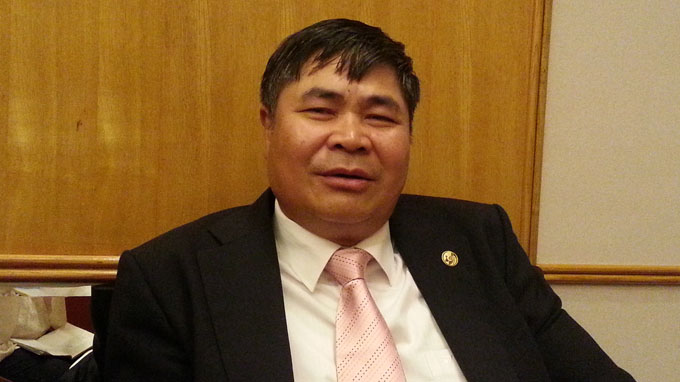The time is ripe for Vietnam to attract investment from Japan, and there will be missed opportunities if the country doesn’t act on time, a top Vietnamese diplomat in Japan told Tuoi Tre.
Unlike many experts who claim that Japanese investment in Vietnam has plateaued, Doan Xuan Hung, Vietnamese Ambassador Extraordinary and Plenipotentiary to Japan, believes that the potential is still there.
“With trust having already been built between the two countries, more Japanese investors and businesses will arrive in Vietnam in the near future,” Hung told Tuoi Tre.
There is potential because only 33 percent of the 1.3 million Japanese small- and medium-sized enterprises are doing businesses overseas, Hung explained.
Japan’s economic restructuring and development policies, also known as Abenomics, encourages local businesses to expand into foreign markets.
Vietnam can take advantage of this if it can provide investors with strong financial muscle, adequate information, trusts, and convincing bids for investment.
“I want to emphasize that we have built respectable trust with Japan, and this is the prime time to attract the investment inflow from Japan,” he noted.
The East Asian country has been pouring money into China, Thailand and Singapore, and Vietnam will still have to compete with other newly-emerged economies to win Japanese investment.
“But Vietnam has an advantage with its large population, stable politics, and improved investment environment,” he said.
Unclear information
Hung also noted that the country’s unclear investment attraction policy is an issue.
“For instance, while we have been calling for investment in the supporting industries over the last ten years, we just fail to answer when the investors ask what we really want to have,” he elaborated.
Failing to provide the information the investors want to know will discourage them, he warned.
“The investors really want to pour money into Vietnam, but do not know where the money should go,” he said, explaining the importance of supplying adequate information to the investors.
Once the country is able to solve this issue, it can take advantage of a number of golden opportunities.
For instance, if Vietnamese fruit growers and exporters can make use of the modern technology of Japan, more local fruits will be able to pass technical barriers to enter the East Asian market, he said.
“A single mango grown in Japan is sold at US$15, a sum that is enough to buy a kilogram of the best mangos in Vietnam,” Hung illustrated.
Vietnam should also try to be eligible to join the Mekong – Japan cooperation program, where Japanese government pledged to support 600 billion yens for the Mekong nations.
Besides the direct foreign investment attraction, the ambassador also said the merger and acquisition market between Japanese and Vietnamese businesses will also be heated.
“M&A is the shortest way for Japanese businesses to penetrate Vietnamese market,” he remarked.
“Many local businesses are struggling to restructure and escape losses and bankruptcy, and these will be attractive and potential M&A deals for the Japanese investors to consider,” he concluded.
|
The conference, titled “M&A tai VN- suc hut tu thi truong Nhat” (M&A in Vietnam – Attracting Investors from Japan), will be held on November 12 in Tokyo. It will be co-hosted by Tuoi Tre Newspaper and its Japanese counterpart Mainichi, and supported by the Iwakaze Capital Inc and BWLaws. In Vietnam, businesses that wish to attend the conference and seek partners at the event can contact the organizers by calling Ms. Trang of BWLaws at 0938946936, or emailing Mr. Xuan Toan at kinhte@tuoitre.com.vn. They can also contact Tuoi Tre headquarters at 60A Hoàng Văn Thụ, P.9, Q.Phú Nhuận, TP.HCM. |




















































